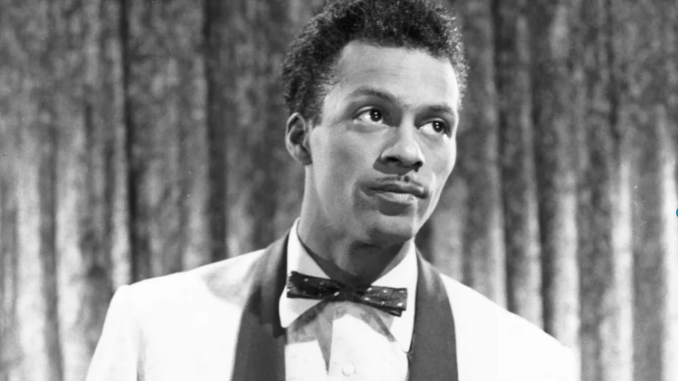

In March of 1958, a rock ‘n’ roll anthem stormed the American Bandstand charts, capturing the hearts of millions of teenagers across the country. That anthem was Chuck Berry’s “Sweet Little Sixteen” — a song that not only climbed the Billboard charts but also defined the spirit of an entire generation. But what was it about this track that made it resonate so deeply with young audiences and rise to number one on one of television’s most influential platforms?
A Song That Spoke to the Youth
The lyrics of “Sweet Little Sixteen” painted a vivid portrait of a teenage girl who was obsessed with her favorite rock stars, chasing concerts, and dreaming of autographs. At a time when teenagers were first beginning to emerge as a powerful cultural force, Berry gave voice to their passions, desires, and dreams. The song wasn’t just about one girl — it was about every American teen who found freedom and identity in music.
Timing and Teen Culture
1958 was a pivotal year in American pop culture. The post-war baby boom had created a massive teenage demographic, and with them came a hunger for new music, new fashion, and new idols. Chuck Berry, already a rising star, tapped into that energy with pinpoint precision. His songs fused rhythm and blues with teenage storytelling, and “Sweet Little Sixteen” was his masterpiece.
On American Bandstand, Dick Clark recognized instantly that the song had struck a chord. Teen dancers on the show loved it — it was upbeat, easy to dance to, and full of youthful energy. The lyrics even mentioned “Bandstand” itself, forging a self-referential link that felt personal to viewers.
A Melody You Couldn’t Forget
One of the keys to the song’s popularity was its catchy melody and irresistible guitar riff. Berry’s signature style, full of slick solos and foot-tapping rhythms, made “Sweet Little Sixteen” a dance-floor favorite. In an era where music spread through jukeboxes, radio, and word of mouth, a hook that stuck was everything.
The song also had wide geographic appeal. Its lyrics name-checked cities from coast to coast: Boston, Pittsburgh, St. Louis, New Orleans, and more. For teenagers watching from those towns, it was exhilarating to hear their hometowns in a hit song. It wasn’t just national exposure — it was national inclusion.
Chuck Berry: The Teenage Poet
Chuck Berry had a unique gift. He could write songs that teenagers felt were written just for them. He knew their slang, their heartbreaks, their joys, and their favorite hangouts. With “Sweet Little Sixteen,” he created not only a catchy tune but also a cultural moment. He captured the Beat Generation’s energy before it was named, and he packaged it into two minutes and thirty seconds of joy.
Berry also appealed across racial lines at a time of segregation. On shows like American Bandstand, his music brought Black rhythm and blues to white teenage audiences, helping to bridge cultural gaps and plant the seeds of change.
Radio Requests and Fan Frenzy
According to chart reports from March 1958, “Sweet Little Sixteen” was one of the most requested songs on radio stations from Philadelphia to Los Angeles. Record stores couldn’t keep up with the demand for Berry’s single. Teen magazines featured fan letters praising the song, and local dances often opened with it.
American Bandstand took notice. Viewer call-ins and fan mail made it clear: this song wasn’t just a hit, it was a movement. Every time it aired, television sets turned louder, living rooms turned into dance floors, and moms hollered up the stairs to tell kids to keep it down.
A Legacy That Still Echoes
“Sweet Little Sixteen” didn’t just top charts — it left an imprint. It inspired future musicians (The Beatles famously adapted its melody for “Back in the U.S.S.R.”), and it reminded the world that teenage culture was a powerful force.
Even now, when we look back at grainy American Bandstand footage, there’s something electric in the air when that song plays. It’s a reminder of saddle shoes squeaking on gymnasium floors, transistor radios held close to teenage ears, and the thrill of first loves and fast songs.
🖋️ Do you remember hearing “Sweet Little Sixteen” on the radio or watching it on American Bandstand? We would love to hear your story.
📋 Share your story with us here:



